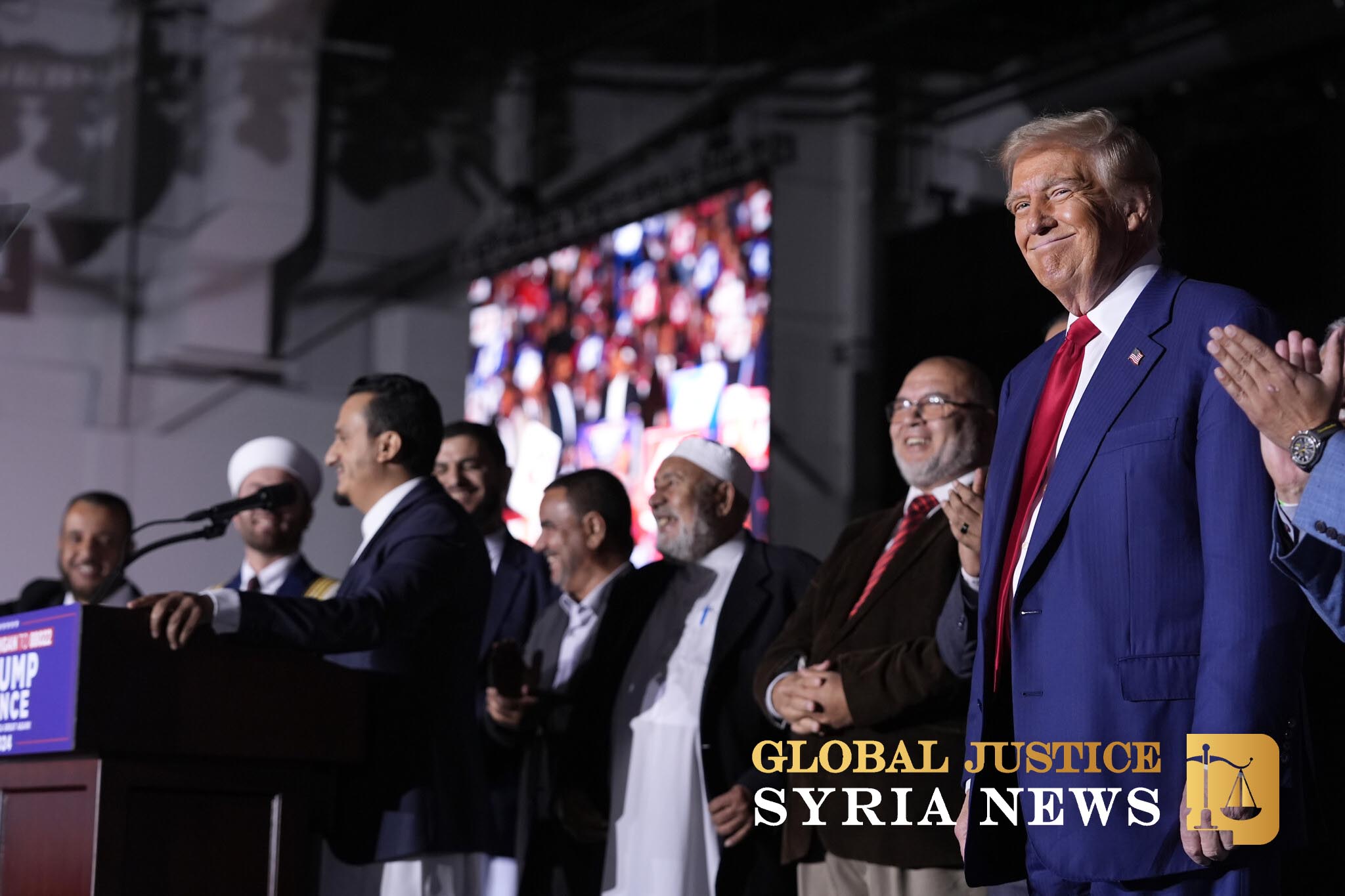In an exclusive interview with Global Justice Syria News, Dr. Saud Al-Atassi, a board member of Global Justice, revealed recent communications and meetings between Muslim communities and the U.S. presidential candidate, Donald Trump.
Al-Atassi mentioned that Trump’s campaign officials have been reaching out to the Arab community since the beginning of the year, trying to build connections. One of the primary communication channels has been through Bilal Zuhair, an imam at the Grand Mosque in Michigan.
“The meeting took place with the group, and Trump was present twice before. Of course, he was confronted about his comment referring to Yemenis as terrorists, and he apologized for that statement. It was agreed to work towards further understandings,” Al-Atassi said.
He noted that Trump expressed a desire to meet more members of the community, saying, “I received the invitation as a representative of Syrians and due to my involvement with the Syrian American lobby.”
Al-Atassi added, “I attended to bring up the Syrian issue during the meeting. Trump entered in a humble and approachable manner. He entered the hall without making us feel any form of discrimination, and there was no inspection or anything of the sort. It was somewhat surprising to me.”
The Five Points
Al-Atassi explained that Trump walked around the table, shaking hands with everyone.
“Bilal then brought up the main requests of the community, which included five points:
- Stopping the wars in Gaza, Palestine, and Ukraine.
- Preserving the cultural and familial values of Muslims.
- Addressing Islamophobia and negative propaganda against Arabs and Muslims.
- Supporting free-market economics.
- Including someone from the Muslim community in his administration.”
Trump responded by saying that these demands were “reasonable and justified,” even adding, “They don’t need much thought.”
Al-Atassi emphasized that Trump extended his hand to the Arab and Muslim community, including its traditional segments. Trump also wanted to be photographed with imams in traditional attire, and he shook their hands warmly.
“The general American audience welcomed our presence, applauding both as we entered and exited,” Al-Atassi remarked. “This was a positive sign, showing an understanding of the importance of a decisive election result to prevent any manipulation of the outcome.”
Al-Atassi pointed out the significance of the Arab and Muslim community potentially supporting Trump. He reminded Trump that a strong leader’s words could help stop wars, thanking him for halting a possible massacre in Idlib during his first term. He looked forward to further cooperation on these issues.
“The message was essentially about stopping wars, and Trump presented the Arab Muslim community in a positive light, which was met with a very favorable response from the audience,” said Al-Atassi.
Role of Massad Boulos
Trump’s son-in-law, Massad Boulos, played a significant role in facilitating communication and extending a hand to the community through arranging these meetings.
“I saw that the president spoke very positively about his son-in-law, who helped connect him with the community,” Al-Atassi noted.
He concluded:
“The demands were clear, and Trump’s response was also clear. The message was simple, but important. Gaza and Palestine were mentioned by name to ensure no one could claim there were personal interests involved. The matter is bigger than individual interests; it concerns the community and the nation.”



















